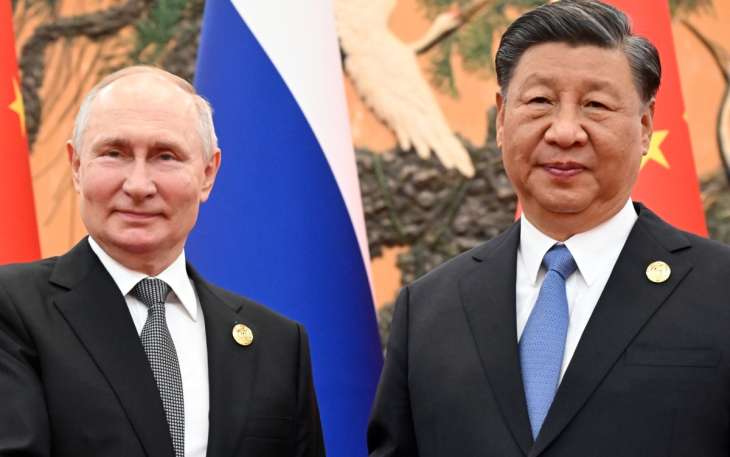
[ad_1]

China’s special envoy to the Middle East, Zhai Jun, on Friday, said that Beijing shares the same position as its ally Russia on the Palestinian issue and are planning to work together to broker a peace deal and a two-state solution for Israelis and Palestinians.
“The fundamental reason for the current situation of the Palestine-Israel conflict is that the Palestinian people’s lawful national rights have not been guaranteed,” said Zhai in a statement released by the Chinese foreign ministry on Friday, a day after meeting Russian President Vladimir Putin’s special representative Mikhail Bogdanov in Qatar.
The top Chinese envoy also said that China is ready to maintain communication and coordination with Russia to promote de-escalation of the situation, adding that it wants to play a “positive role” in resuming peace talks between the two warring nations in the Middle East.
Zhai is representing China’s efforts in the Middle East for a ceasefire between Israel and Hamas, following the latter’s brutal and unprecedented attack on October 7 that killed hundreds of civilians and soldiers. China and Russia have confirmed “unwavering focus” on a political settlement of the decades-old conflict.
China is yet to condemn the Hamas attack on Israel, instead opposing attacks on civilians and calling for an immediate ceasefire to protect civilians amid Israel’s relentless bombardment of the Gaza Strip in retaliation of the Hamas attack.
“We believe that when dealing with hot spot issues in the international community, major powers should be objective and impartial,” said Chinese Foreign Ministry spokesperson Mao Ning on Friday.
It is largely believed that China, a key rival of the United States, wants to place itself as a mediator in hopes of exerting influence in the Middle East in lieu of the wavering global attention of the US. However, the latest conflict has dragged Washington back in the Middle East with a visit from President Joe Biden to Israel.
Meanwhile, Egyptian Prime Minister Mostafa Madbouly told Chinese President Xi Jinping that Arab nations highly appreciated China’s “consistent and just position” on the Palestinian issue and expected it to play a bigger role in the future.
Notably, China has deep economic interests in the Middle East and the Arab nations, related to the oil market and the Belt and Road Initiative. It also seeks to counter US influence in the region, as Washington is a key ally of Israel. It has supported the cause of an independent Palestinian state for decades and wants to safeguard its interests. It has criticised Israel for going “beyond the scope of self-defence” and punishing the civilians of Gaza.
Russia’s stance on Israel-Palestine conflict
Recently, Kremlin leader Putin, who has also called for a ceasefire, said that Israel has the right to defend itself but maintained his stance on an independent Palestinian state.
“The negotiations’ goal should be the implementation of the United Nations’ two-state formula, which implies the creation of an independent Palestinian state with East Jerusalem as its capital, coexisting in peace and security with Israel, which, of course, as we have seen, has come under an attack of unprecedented brutality. Of course, it has the right to defend itself. It has the right to ensure its peaceful existence,” the Russian President said at an event.
Russia also called for the immediate release of all hostages taken by Hamas militants. It also called for the “unimpeded provision and distribution of humanitarian assistance, including of food, fuel and medical treatment, as well as creating conditions for the safe evacuation of civilians in need”.
Russia is also a key rival of the US and blamed the conflict on ‘US policy failures’. Its careful stand on the war similarly reflects long-standing ties to Israel, Palestine and other Arab nations.
The Soviet Union strongly backed the Palestinians and other allies in the Arab world against Israel during the Cold War by providing them with military and political support. However, relations with Israel were restored under Soviet leader Mikhail Gorbachev shortly before the collapse of the Soviet Union.
(with AP inputs)
ALSO READ |
[ad_2]
Source link